Business Culture in The Germanic Europe Cluster
The Germanic Europe cluster includes Germany, Austria, the Netherlands, and German speaking Switzerland (French and Italian speaking Switzerland are part of the Latin Europe cluster).
Germanic societies are defined by:
- a low-context communication style;
- a monochronic approach to time management
- individualistic traits
- a doing orientation (Germanic cultures value productivity, efficiency, high-performance and competitiveness);
- a dislike for ambiguity and unpredictability (uncertainty avoidance);
- a "masculine" orientation("live to work" mentality), with the exception of the Netherlands, the only "feminine" society in this cluster ("work to live" mentality);
- low power distancedynamics.

- Germanic cultures are goal oriented: tasks are prioritized over relationships, and completing a task is a way to show one's professionalism, reliability, and commitment to the job.
- Personal relationships are important, but not a pre-requisite to doing business together. They may develop at a later stage, as a result of successful business dealings.
- People have a great respect for authority, usually connected to one's level of knowledge and expertise in a given field. Academic titles and achievements are important.
- Germanic cultures are cultures of guilt/dignity: people are usually assertive and straightforward, pointing out someone's mistakes is not frowned upon, issues are clearly discussed and promptly addressed.
- The business etiquette tends to be formal and serious. Small talk and humour are unlikely to be appreciated.

Business culture in Germany
- In Germany organization and perfectionism are deeply valued: products and services are of high quality because every process is meticulously planned and regulated by a set of rules and procedures.
- Personal and business relationships don't necessarily overlap, as there is a clear division between the private and the work sphere.
- The business structure is hierarchical and meritocratic: education and experience are one's most valuable credentials, academic titles matter. Leadership based on expertise is highly respected.
- The business communication is formal and conservative: it is advisable to address people using either the appropriate courtesy title (Frau/Herr) or the university one (e.g., Doctor) until invited to use their first name.
- The German society is low-context: people tend to communicate in an open, explicit, and direct manner as transparency is greatly appreciated. Contracts and agreements are usually long and detailed. The use of non-verbal communication is minimal, strong displays of emotions are not appreciated.
- Plan ahead: German time is monochronic and highly structured. As in Germany punctuality is important and associated with reliability and good manners, delays, last-minute changes and cancellations can be seen as disrespectful.
- In business meetings the atmosphere is serious and formal: punctuality is expected (being 5-10 minutes early is appreciated), the agenda is followed, interruptions are not welcome, small talk is limited. Proposals must be backed up by specific and detailed documentation.
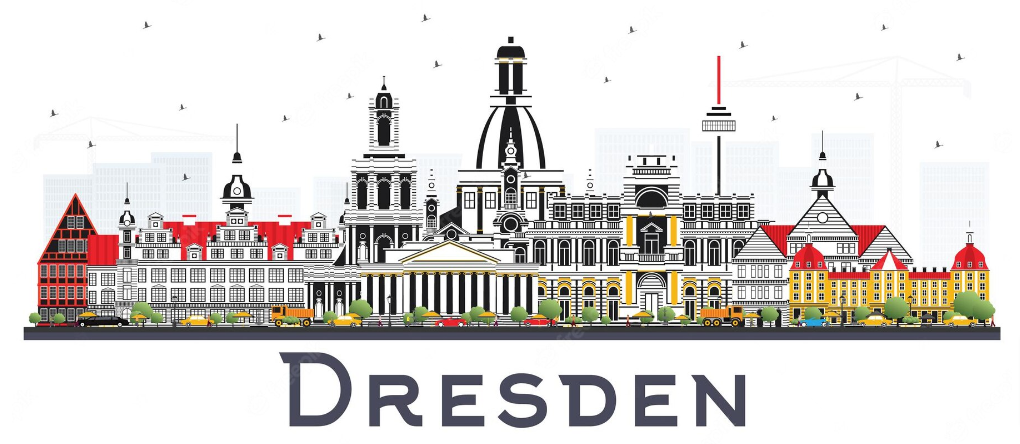
Business culture in Austria
- In Austria business practices tend to be formal and conservative. Order, organization, and stability are highly valued and appreciated.
- Personal and business relationships don't necessarily overlap, as there is a clear division between the private and the work sphere. Socializing in a work related context is often a formal matter (e.g., networking events).
- The business structure is hierarchical and meritocratic: education and experience are one's most valuable credentials, academic titles matter. Leadership based on expertise is highly respected. It is advisable to address people using either the appropriate courtesy title (Frau/Herr) or the university one (e.g., Doctor) until invited to use their first name. Information on academic titles and how to use them appropriately can be found on the Austrian government online platform.
- The communication in Austria is low-context: people tend to communicate in an open, explicit, and direct manner, especially in writing. Contracts and agreements are usually long and detailed. The use of non-verbal communication and body language is minimal, strong displays of emotions are not appreciated.
- Austrian time is monochronic and highly structured: as punctuality is important and associated with reliability and good manners, delays, last-minute changes and cancellations can be seen as disrespectful and unprofessional.
- In business meetings the atmosphere is serious and formal: punctuality is expected (being 5-10 minutes early is appreciated), the agenda is followed, interruptions are not welcome, small talk is limited. Proposals must be backed up by specific and detailed documentation.
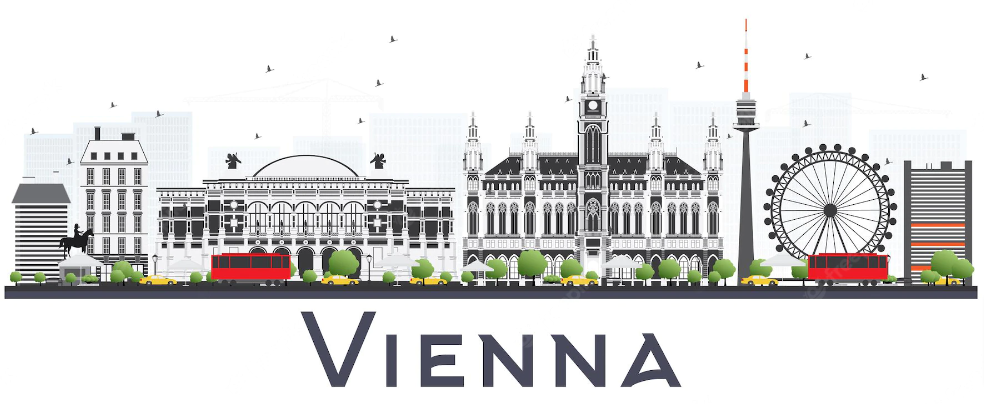
Business culture in the Netherlands
- In the Netherlands business practices are usually informal. It is common to address colleagues of equal rank using their first name, but when addressing a senior (in terms of age or rank) stakeholder it is advisable to use the appropriate courtesy title ("meneer", sir, or "mevrouw", madam) until invited to do otherwise.
- Personal and business relationships don't necessarily overlap, as there is a division between the private and the work sphere. Socializing in a work related context is often a formal matter (e.g., luncheon meetings).
- Dutch culture is highly egalitarian. Hierarchy exists but mainly as a matter of convenience: the role of a manager is mostly to consult and guide, and the decision-making process involves both senior executives and junior employees. Meetings are frequent, and the decision is made when group consensus is reached.
- The communication in the Netherlands is low-context: people tend to communicate in an open, explicit, and direct manner. Constructive criticism is shared to improve plans or ideas and it is advised not to take it personally. The use of non-verbal communication and body language is minimal, strong displays of emotions are not appreciated.
- Dutch time is monochronic: time is money and it should not be wasted. Structure and planning are important, punctuality is associated with reliability and good manners. Delays, last-minute changes and cancellations can be seen as disrespectful and unprofessional.
- While a conservative/classic style is the norm in some sectors (e.g., banking), the dress code is usually casual. Some occasions, however (e.g., the first meeting with a client, or a job interview), require a more formal attire.
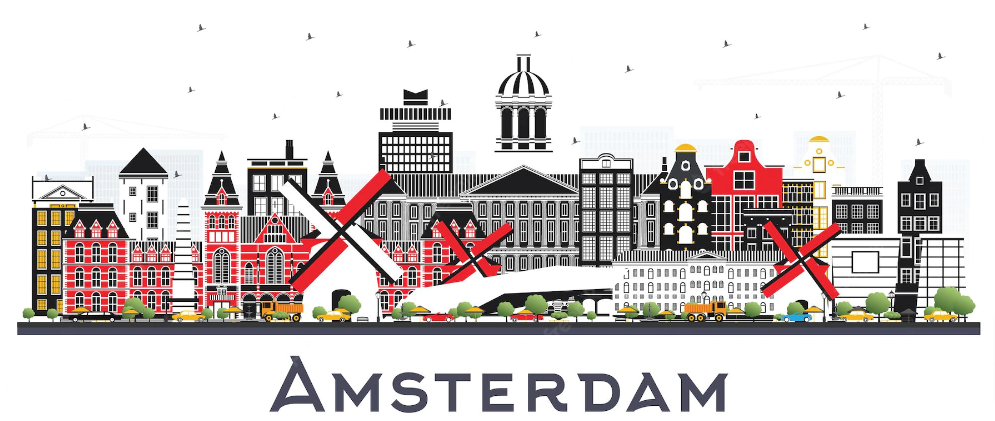
Business culture in Switzerland (German speaking area)
- Switzerland is a complex environment where different cultures coexist and four official languages are spoken (German, French, Italian, and Romansh). As a result, business culture might, to some extent, depend on whether we are looking at the German, French, or Italian areas of Switzerland (Swiss German culture, for example, is more formal and conservative that Swiss Italian culture) . Some traits, however, are common across the country.
- Personal and business relationships don't necessarily overlap, as there is a division between the private and the work sphere. Socializing in a work related context is mostly a formal matter.
- Business culture in German speaking Switzerland is moderately hierarchical: while proactivity and independence are appreciated and individual contributions are valued, decisions are usually made at the level of top management
- In Switzerland, the communication is low-context: people tend to communicate in a polite and direct manner. Strong displays of emotions and exaggerations are not appreciated. The use of non-verbal communication and body language is minimal: hand gestures may be perceived as rude, and it is expected that one keeps a straight posture while talking to someone else. It is advisable to address people using the appropriate academic or courtesy title - Madame/Monsieur, Frau/Herr, Signora/Signore plus surname - until invited to do otherwise.
- Swiss time is monochronic: structure and planning are important, punctuality is associated with responsibility and good manners. Delays, last-minute changes and cancellations can be seen as disrespectful and unprofessional.
- The dress code is classic/conservative: simple, understated elegance would be the best option. Avoid, if possible, strong colours and flashy jewelry, as the Swiss may find displays of wealth distasteful.
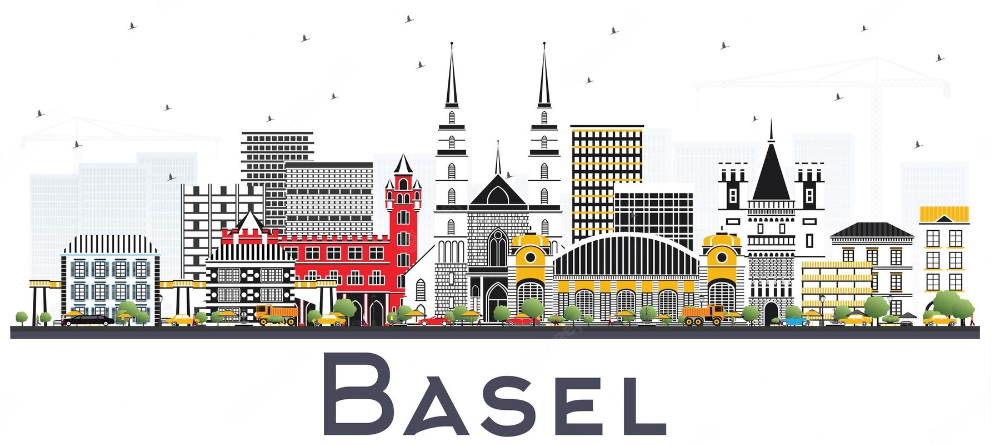
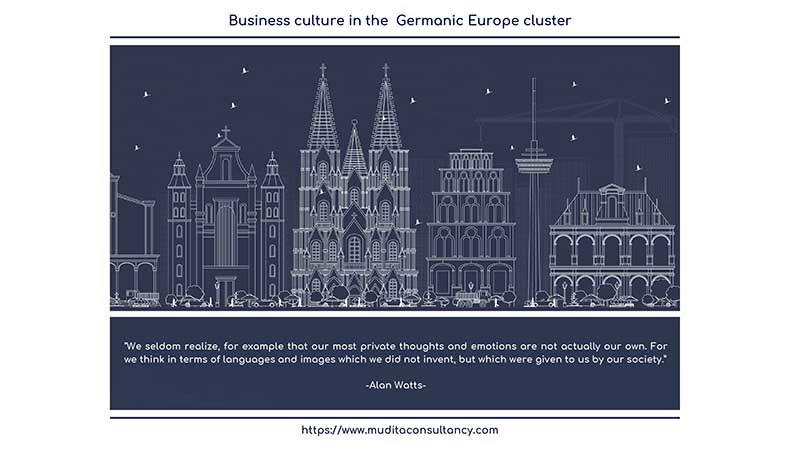
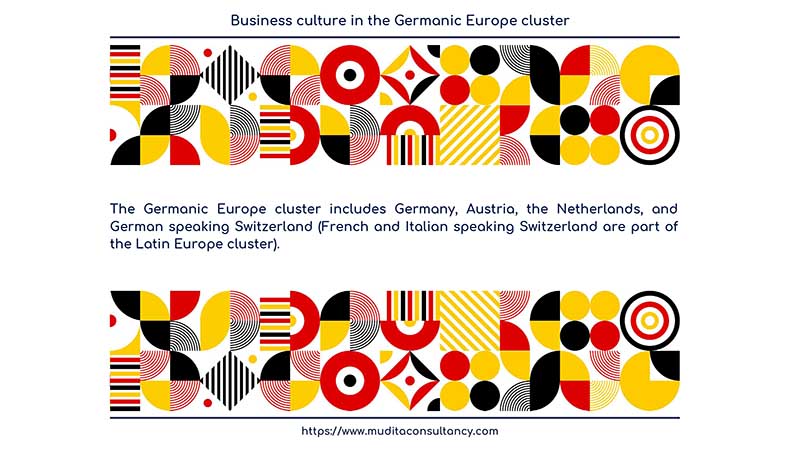
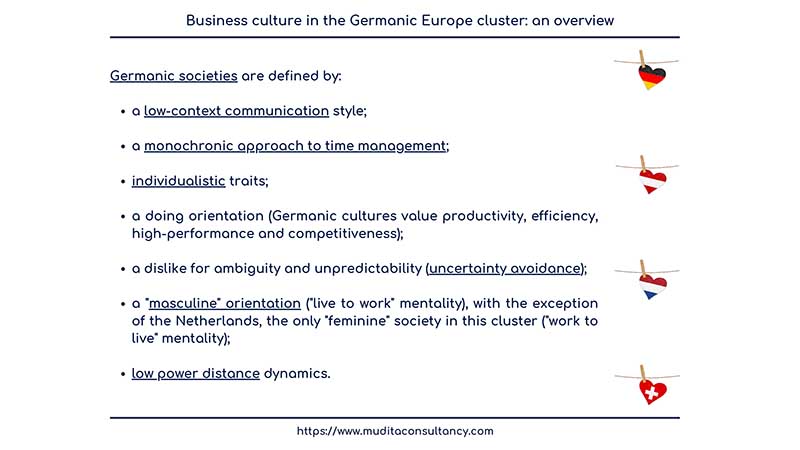
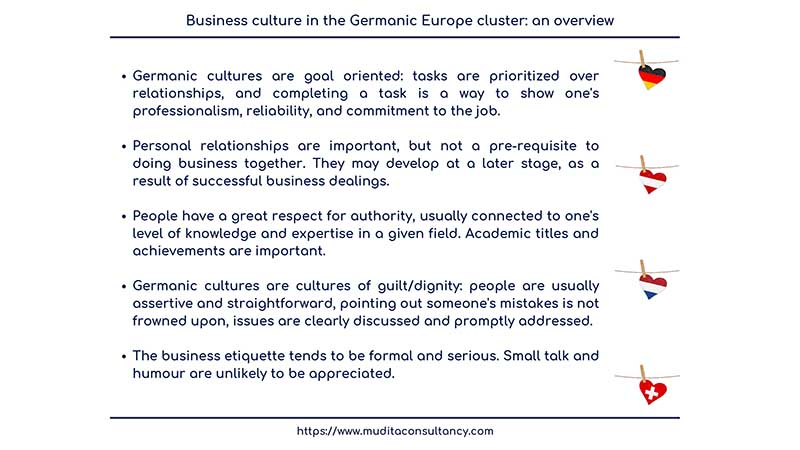
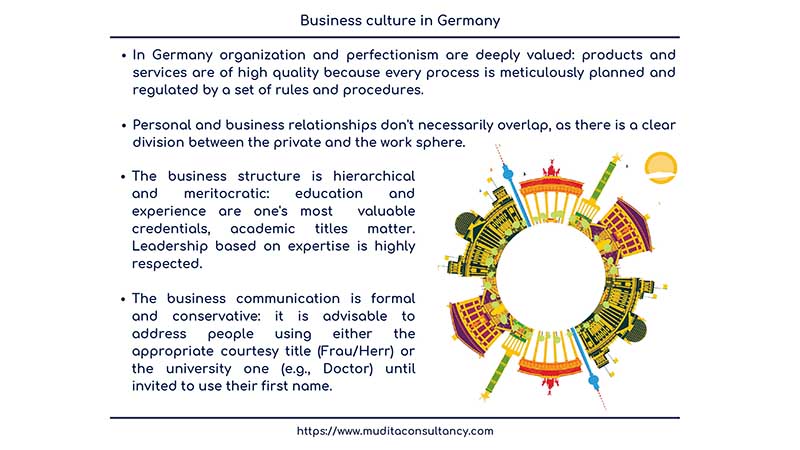
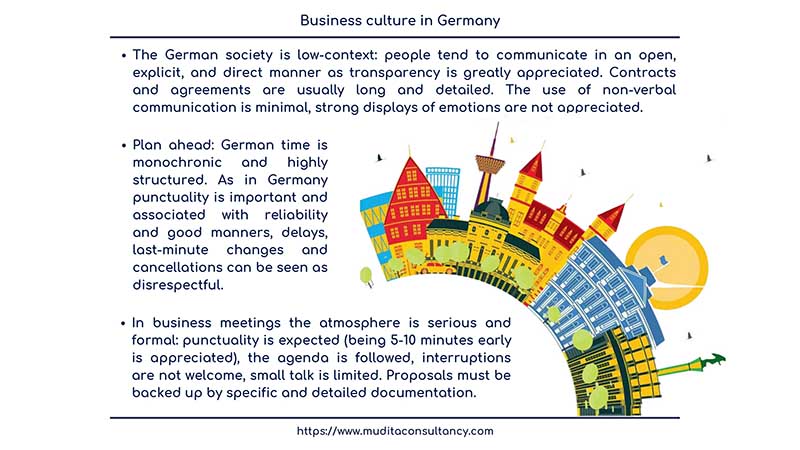
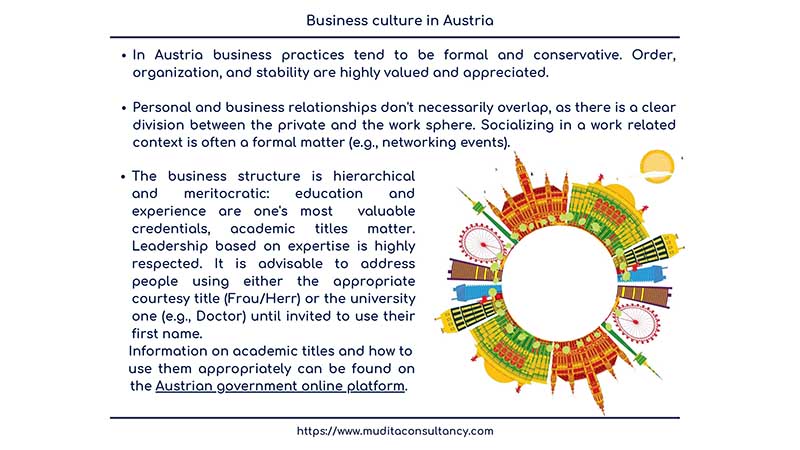
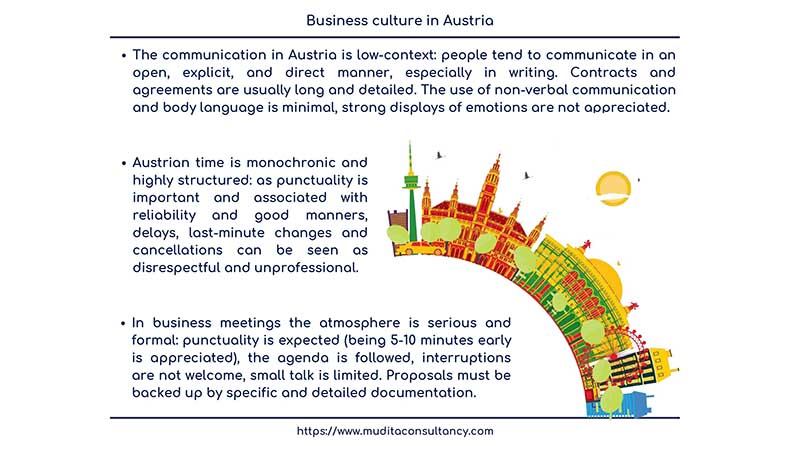
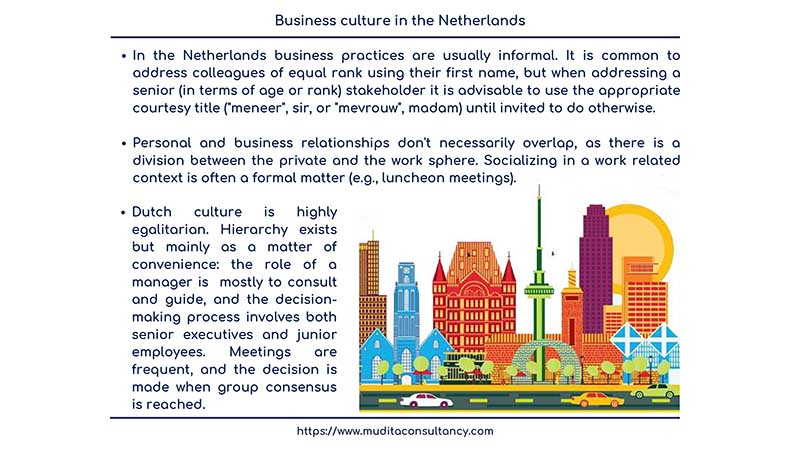
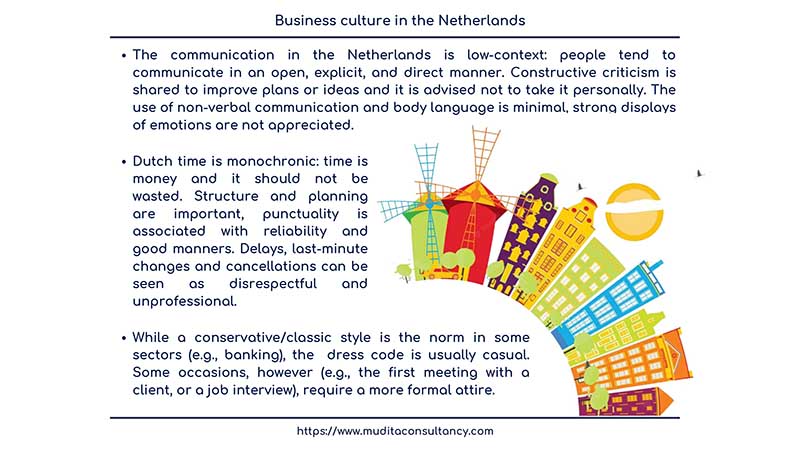
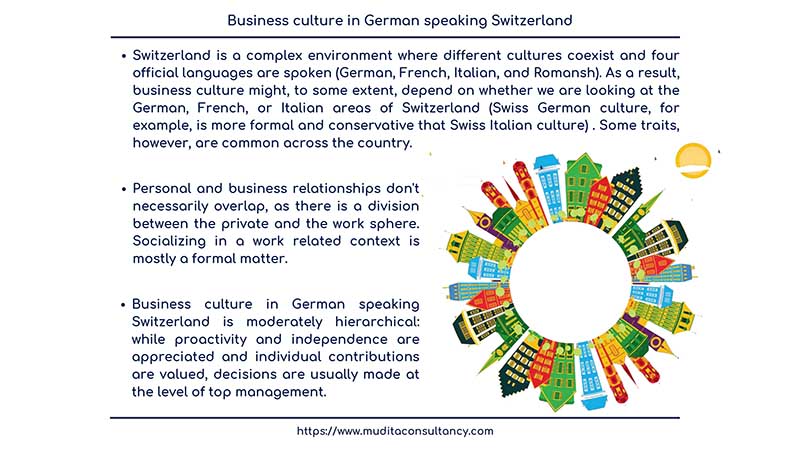
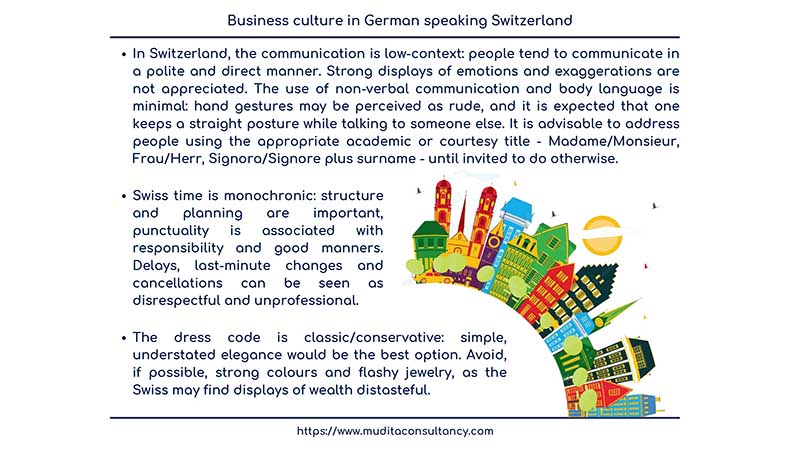

SOURCES
- Hall Edward T. (1959).“The Silent Language”. New York, NY: Doubleday
- Hall, E.T. (1966). "The Hidden Dimension". New York, NY: Doubleday
- Hall, E. T. (1976). "Beyond culture". New York, NY: Doubleday
- Hall, E. T. (1984). "The Dance of Life: The Other Dimension of Time". New York, NY: Doubleday (Anchor)
- Hofstede, G. H. (1997). “Cultures and Organizations: Software of the Mind” (second ed.). New York: McGraw-Hill
- Hofstede, G. J., Pedersen, P., & Hofstede, G. (2002). ”Exploring culture: Exercises, stories, and synthetic cultures”. Yarmouth, Me: Intercultural Press
- House, R. J., Hanges, P. J., Javidan, M., Dorfman, P. W., & Gupta, V. (2004). "Culture, leadership, and organizations: The GLOBE study of 62 societies". CA: Thousand Oaks
- House, R., Javidan, M., Hanges, P., & Dorfman, P. (2002). "Understanding cultures and implicit leadership theories across the GLOBE: An introduction to project GLOBE". Journal of World Business, 37(1), 3–10
- The Globe Project, online: https://globeproject.com/

